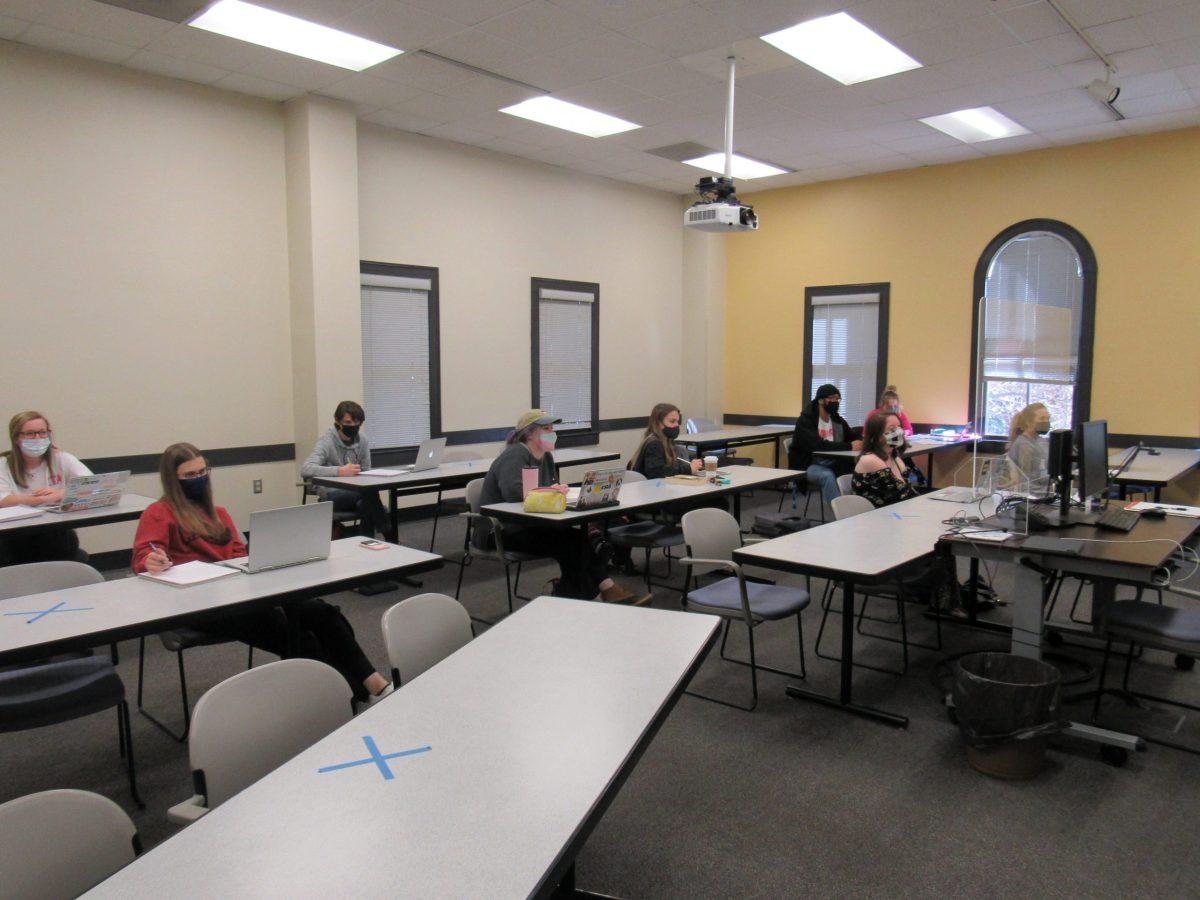A spotlight on black history learned in Rhetoric, Writing, and Race
“When I think about Stamped from the Beginning, I think that one of the reasons I chose to teach it in this class specifically is because much of what it does is highlights voices that were silenced over time. Also, it’s important to note that this silencing was intentional and rhetorically constructed throughout history and continues today,” John Miles, associate professor of English, said.
His Rhetoric, Writing, and Race class this semester recently finished a book titled Stamped from the Beginning by Ibram X. Kendi. The book covers a history of racism against black people in America from its origins to present day and presents a look into a variety of topics, such as slavery, segregation, racial stereotypes and silenced voices.
“(During Black History Month) many students learn a disjointed and decontextualized history. You learn about Martin Luther King, you learn about Malcolm X, and you may or may not learn about Angela Davis,” Miles said. “But you don’t learn about how they were intersecting in the larger context of American rhetorical history, and how their history is part of American history. It’s not separate.”
Brandi Wylie ’24, said of the class, “I had never really had a course that honestly gave me the full story behind black history and the actual fight for equality. A lot of what we talk about in this class is the idea of rhetoric and how you say what you say.”
“I feel like we’re not only learning different parts of black history through our readings,” Wylie said, “but why we may have gotten the different versions of history throughout our education.”
A large theme in Stamped from the Beginning is the modification of history teachings to be more “comfortable” for white people to listen to, which often omit pieces of black history that are considered uncomfortable.
Discussion of this topic raised questions in the class about the presence of black history in the education system.
“One of the things the Wofford Anti-Racism Coalition has in their statement is asking that studying diversity and equity become a requirement for every student (at Wofford),” Miles said. “I think if we allow people to opt out (of that education) through choice or ignorance, then we’ve let down our mission (as Wofford College).”
Multiple students in the class reflected on their education prior to coming to Wofford, noting especially tense events that occurred during their childhood and adolescence, such as President Obama’s inauguration and the murder of Trayvon Martin.
Various lesser-known pieces of America’s history of racism were discussed in the book and shocked the class, such as the mutilation and exhibition of Sarah Baartman’s body, Carl Van Vechten’s publishing of N—– Heaven in response to the Harlem Renaissance, and Malcolm X’s hajj that changed his approach to fighting racism in America (and the media’s subsequent failure to recognize his shift in ideology).
This year’s Black History Month raised many questions across the country concerning how to go about teaching Black history, with many schools failing to do so at all. Nevertheless, as this class shows, there is an abundance of Black history present in society, and much of it has yet to enter the minds of many students across America, including on Wofford’s campus.
Wofford does, however, offer classes in multiple departments that center on race studies in the lens of English, Sociology, Art History and Philosophy, among other subjects.
Eyon Brown ’21, said of this particular class, “I’ve appreciated my time in Dr. Miles’ class because he’s been a great facilitator of cross-cultural discussion. He’s very receptive to students’ diverse ideas and the course material that we’ve been reading has been really informative about not only rhetorical theory, but also American history.”
With that in mind, Wofford still lacks an official requirement for students to engage in learning about Black history.






























